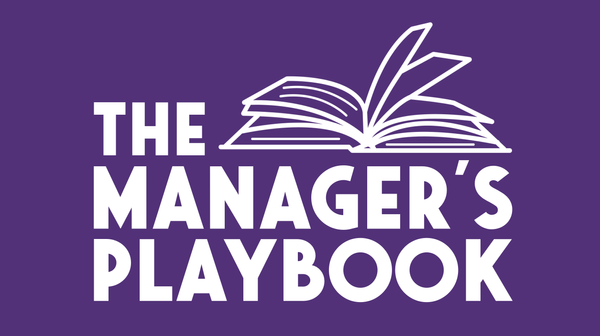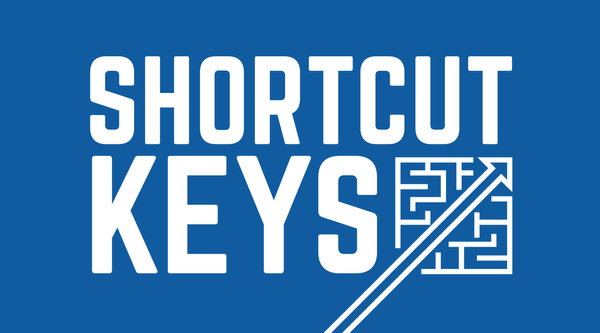Getting Into The Right Mindset For Brainstorming Talk Ideas

So, you've sat down to come up with a new talk idea, you're looking at your screen/paper, you've got your list of prompts in front of you and yet... your mind is still blank. Why can't you come up with any ideas?
One part of this is being asked the right questions, allowing your mind to reflect, wonder and be creative in finding the talks that you want to do. In a previous post, I showed the long list of prompts that I use for brainstorming talk ideas - what questions can you ask yourself to come up with possible ideas?
But that's not always enough. Another key part of this is getting into the right mindset to get those creative juices flowing and not limiting yourself to what you think you know. How do you make sure you get into that right mindset?
If you're new to this blog, I previously covered the following about talk ideas:
- The Myth of Not Having Anything To Talk About
- A Framework for Brainstorming Talk Ideas
- Prompts for Brainstorming Talk Ideas
With today's blog post, we'll look at some strategies to help you unlock your creativity and get you into the right mindset to brainstorm great ideas.
Clear your mind
Begin by clearing your mind of distractions. Find a space where you can focus without interruptions, in a way that works for you. For some of you that might be somewhere nice and quiet, for others it might be surrounded by others or by specific music. It's all about finding an environment around you where you feel comfortable and can get inspired.
I've often gotten my best ideas when I'm relaxed, happy and willing to let my mind wander. I love going to a museum and just sitting on a bench in front of some art, grabbing a comfy chair at a coffee shop or sitting in a park or a garden. Sometimes it's worth breaking the monotony of your day-to-day and changing your environment to change your mindset.
Capture all your ideas
Keep a notebook, digital journal, or use a note-taking app to capture all your ideas. Even if some of them don’t feel quite right right now, add them to your list. These brainstorming sessions aren't about creating a list, just picking one and throwing the rest of the ideas away. It’s about creating a repository of all the ideas you have that you one day might want to talk about and revisit. I’ve done talks based on ideas that I initially came up with a few years prior– some talks need time to simmer and evolve. Sometimes previous ideas will act as inspiration for new ideas; your thinking since may have changed or you might have gotten a new perspective.
There are no stupid ideas
Write down every single idea that you can think of, no matter how ridiculous, wild or seemingly insignificant they may appear. Sometimes, the seed of a brilliant idea lies within a fleeting thought or a scribbled note.
We often forget about the things that we know and we’ll disregard ideas that we think no one else will care about or that we think everyone knows already about. In my workshops, I get people to discuss their talk ideas in small groups, and many are often surprised that others wanted to hear about some of the “silly” or throwaway ideas they came up with.
Don't underestimate the amount of knowledge you've built up; we each have our own pockets of experiences and knowledge, lean into what you know!
Don't limit yourself to what you know
The flipside though is also true. Often, we default to drawing upon our existing knowledge and experiences when considering what to talk about. While this can be valuable, it can also constrain your thinking and prevent you from exploring new ideas.
Don't be afraid to explore topics outside your expertise or comfort zone. You may not be an expert, but that is not necessary for it to be an interesting and useful talk. You are an expert on your own life and experience and will have a unique perspective on whatever topic you choose. Only you can tell your stories.
Think outside the box
Try to break free from conventional thinking and challenge yourself to think outside the box. Consider how you might look at a talk idea differently cause that might inspire a different perspective or idea.
Could you flip the problem on its head and consider it from a different angle? For instance, instead of asking how to solve the problem, ask yourself how you could make the problem worse. Or question the assumptions that underlie a problem or situation. Ask yourself why things are done a certain way and whether there might be alternative approaches that you hadn't considered.
Are there ways you can make an idea stick easier or explain it more effectively? Draw parallels between seemingly unrelated concepts or domains. Look for metaphors that resonate with the problem you're trying to solve, and use them as springboards for new ideas.
Don’t get stuck on the title
The prompts and framework are about coming up with ideas for your talks, not the talk title. The title doesn't need to be perfect yet.
I’ve noticed people trying to come up with variations of what to call their talk, which at this point doesn’t matter yet. You can figure out later what title works, and what sounds catchy and describes your talk in the right way. Right now it’s about the topic of your talk – focus on that!
Draw inspiration through learning
If you get stuck, choose a topic to research and learn more about. Immerse yourself in that topic and research related concepts, read articles, watch relevant videos, and explore different perspectives. But while doing so consider what your take on it all would be.
Drawing inspiration from various sources will fuel your creativity and help you generate fresh ideas. Good talk ideas will often strike me when I'm reading a new book or watching someone else's conference talk. It will start as a small seed of "well, what if...". And sometimes it won't even be related to the topic that I'm learning about! It's all about finding something that sparks an idea in you. Nurture that idea and see how it grows.
Get help from others
If you know you struggle with coming up with ideas, try to get a group of friends or colleagues together and help each other with the prompts and exercises. Discussing and explaining some of the prompts with others and having other people to bounce ideas off can help a lot: you might discover ideas that you wouldn’t have alone.
Develop the “that-would-make-a-good-talk” voice in your mind
Most of the prompt questions are about developing what I call the “that would make a good talk” voice in your head. I tend to always have these types of prompts in the back of my mind whenever I’m working on a project or having conversations with people - is there something in here that would make a good talk?
My instinct now is to always consider whether there’s a story hidden within anything that I’m doing, as well as highlighting that for others when I see they’re doing something or talking about a topic they should be sharing more widely. I love asking folks I meet at conferences what talk they would have done if they were speaking that day and then encouraging them to apply the following year!
The more talk ideas you come up with, the easier some of this brainstorming becomes.
What's next?
The next time you're ready to brainstorm talk ideas make sure you're in the right mindset for it. Hopefully, you've gained some good ideas from this post to help you achieve that.
So, take a deep breath, clear your mind, and dive into the creative process with confidence. Your next conference talk awaits, and with the right mindset, you're bound to come up with a brilliant idea as a topic.
What other activities do you do to get in the right mindset? What techniques have worked for you?




